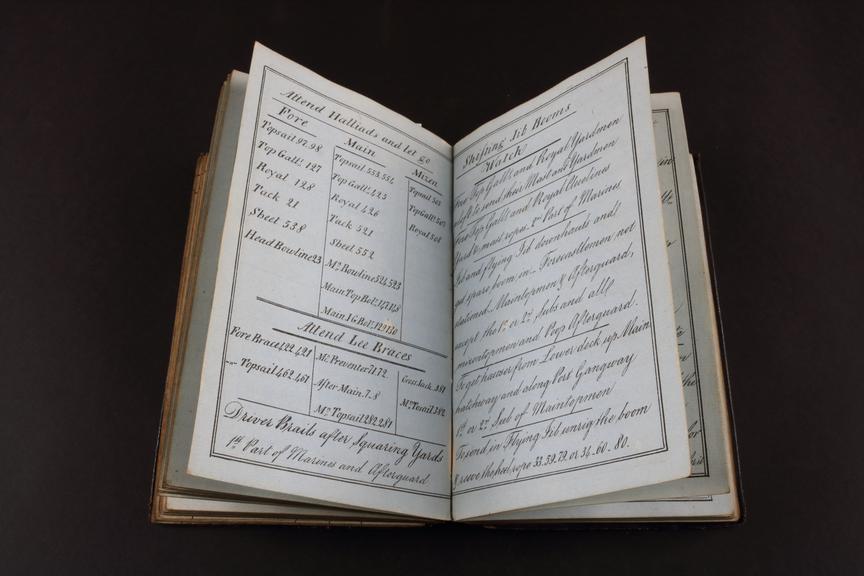Bound volume entitled: "Watch, Quarter & Station Bill of H.M.S. Britannia"
- Made:
- 1852-1854
- maker:
- Lampion, John

A bound volume entitled ‘Watch, Quarter and Station Bill for H.M.S. Britannia. It contains a list of the sailors aboard the ship, their role, their duties aloft for topmen, their boat and their quarters. Also included are the officers’ stations, the division separations, the muster points for borders, the procedures for altering the state of the ship’s sails and the fire procedure, known as the Fire Bill. Also included is a list of the guns, locations of sailors in various parts of the ship and handwritten notes on various subjects including flag signals. It is signed twice by John Lampion, Ship’s Corporal. The front page includes a lithograph of H.M.S. Britannia off Valetta, Malta.
H.M.S. Britannia was a first-rate ship-of-the-line built for the Royal Navy and launched in 1820. It was a wooden sailing ship equipped with 120 guns and crewed by approximately 970 sailors and marines. Commissioned in 1823 under the command of Captain Henry William Bruce she would initially be based at Plymouth before being sent to the Mediterranean in 1830 under Captain William James Hope Johnson where she served as Vice-Admiral Sir Pulteney Malcolm’s flagship. After this, she would be transferred to Portsmouth before being sent back to the Mediterranean in 1841 and being decommissioned in 1843. The Crimean War would see her return to service under Captain Thomas Wren Carter as the flagship of Admiral Sir James Deans Dundas. In this role, she would be involved in the Bombardment of Sebastopol. In 1855 she returned to Britain and became a hospital ship in Portsmouth before being converted to a training ship in 1859. In 1862 she moved to Portland before going on to Dartmouth in 1863. Here she served as a barracks for cadets until 1869 when she was broken up.
Details
- Extent:
-
105
160
20
- Identifier:
- MS/0502
- Access:
- Open Access
- ?:
- Copies may be supplied in accordance with current copyright legislation and Science Museum Group terms and conditions